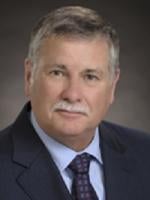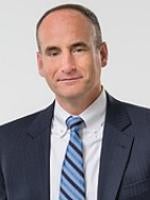On October 18, 2017, a Mississippi physician was charged with health care fraud for writing prescriptions for medically unnecessary compounded medications. This is the latest – though certainly not the last – example of the Department of Justice’s efforts to combat fraud within the TRICARE program. From California to Florida, federal prosecutors have charged physicians, pharmacists and sales representatives with illegal kickback schemes, health care offenses, wire fraud, Controlled Substances Act offenses and False Claims Act violations. This article provides a brief overview of the problem, examines the Government’s response, and offers suggestions for pharmacies and prescribing physicians to avoid getting caught up in these schemes.
What is Compounding?
Compounding is a process whereby a pharmacist or physician “combines, mixes, or alters ingredients of a drug to create a medication tailored to the needs of the individual patient.” Compounded prescriptions are not commercially available from a pharmaceutical company. Instead, they are made for the patient at the pharmacy. There are several reasons a compounded prescription may be needed. For example, a patient may need a particular strength, or perhaps a patient needs the medication in liquid form instead of a pill. At one time, nearly all prescriptions were compounded. This declined significantly with the growth of mass drug manufacturing in the 1960s. Compounding is typically expensive, as it requires time and specialized training and equipment to create the medication. Unfortunately, the high reimbursement rates for compounded prescriptions have led to significant fraudulent activity.
Numbers Don’t Lie
TRICARE is the federal government payor for military health insurance. TRICARE provides comprehensive health coverage, including prescription drug benefits, to members of the military, their families and veterans. The United States military health system’s FY 2016 budget was $48 billion, which covers 9.4 million beneficiaries.
The cost of compounding prescriptions has increased dramatically. In 2004, TRICARE spent approximately $5 million for compounded prescriptions. By 2010, the cost had risen to $23 million. In the first nine months of 2015, TRICARE paid $1.7 billion for compounded drugs. This is over 20% of TRICARE’s total prescription budget. The average cost of a compounded drug is now $2,595, and some drugs may cost $40,000 per prescription. The Government believes that many of the compounded prescriptions are fraudulent. The Government estimates the cost of unnecessary compounded medications exceeds $2 billion.
The Government’s Response
Not surprisingly, the Government has begun to aggressively pursue compound prescription fraud. While each scheme is unique, a pattern has emerged: pharmacy sales representatives use aggressive marketing techniques to market drugs directly to TRICARE beneficiaries. Once the representative obtains the beneficiary’s TRICARE insurance information, it is sent to a physician who writes the compounding prescription and sends it to a compounding pharmacy. The most common compound prescriptions are for pain creams and scar creams. Frequently the prescription includes a controlled substance such as Ketamine or Tramadol. According to Government officials, the prescriptions are often not needed, and sometimes the beneficiary is never seen by the doctor.
There are numerous variations on this scheme. For example, physicians can profit through kickbacks. While this might be a direct cash payment, indirect methods of payment such as medical director fees, payment for conducting research studies, free or reduced office space, payment of office staff salaries, and hiring the physician’s family members to work in the pharmacy have also occurred. Marketers and sales representatives frequently take a percentage of the prescription cost for their compensation. This can be several thousand dollars for each prescription filled.
Patients may also be involved in the scheme. Investigations have revealed instances where patients were paid to participate in “research studies” for the compound medication, instances where patients’ co-payment obligations were covered by the pharmacy, and instances where the patients received gift cards to entice them to accept the unneeded medication.
Data mining is a powerful tool available for the Government in combating suspected fraud. Indicators of fraud include physicians writing prescriptions to patients from different states, rapid spikes and changes in a physician’s prescribing habits, patients that receive multiple compound prescriptions, and prescribing identical compounds for each patient.
Finally, while much of the currently known fraud has occurred in the TRICARE program, similar schemes are seen in other governmental and private health care program. Indeed, many of the offending physicians and pharmacies may not have known they were taking government funds because they billed a third party pharmacy benefit manager, such as Express Scripts or CVS Caremark, rather than submitting bills directly to a federal government payor.
What’s Next? Future Enforcement Trends
The Department of Defense, Health and Human Services, and the Department of Justice are working collaboratively to control the burgeoning costs of compounded medication and have prioritized fraud prevention and enforcement.
Investigations and prosecutions will likely expand across the country as the billing data is disseminated to federal agents and prosecutors. False Claims Act suits will increase as physicians, pharmacists, pharmaceutical sales representatives and patients become aware of the fraudulent schemes.
Physicians and compounding pharmacies should be wary of marketers that promise lucrative returns for writing compound prescriptions. Compound pharmacies should hire a compliance officer and should seek advice from independent health care attorneys. Prescriptions from out of state physicians should be carefully reviewed to determine if they can be filled. Physicians that are offered financial incentives, such as medical director positions, free or reduced-cost office space, and speaking fees should consult with a trusted health care attorney prior to accepting any payments. Most importantly, physicians should only provide prescriptions for compound medications when such prescriptions are medically necessary. Understanding the fraudulent schemes and seeking legal advice will greatly aide physicians and pharmacies in maintaining compliance.





 />i
/>i

